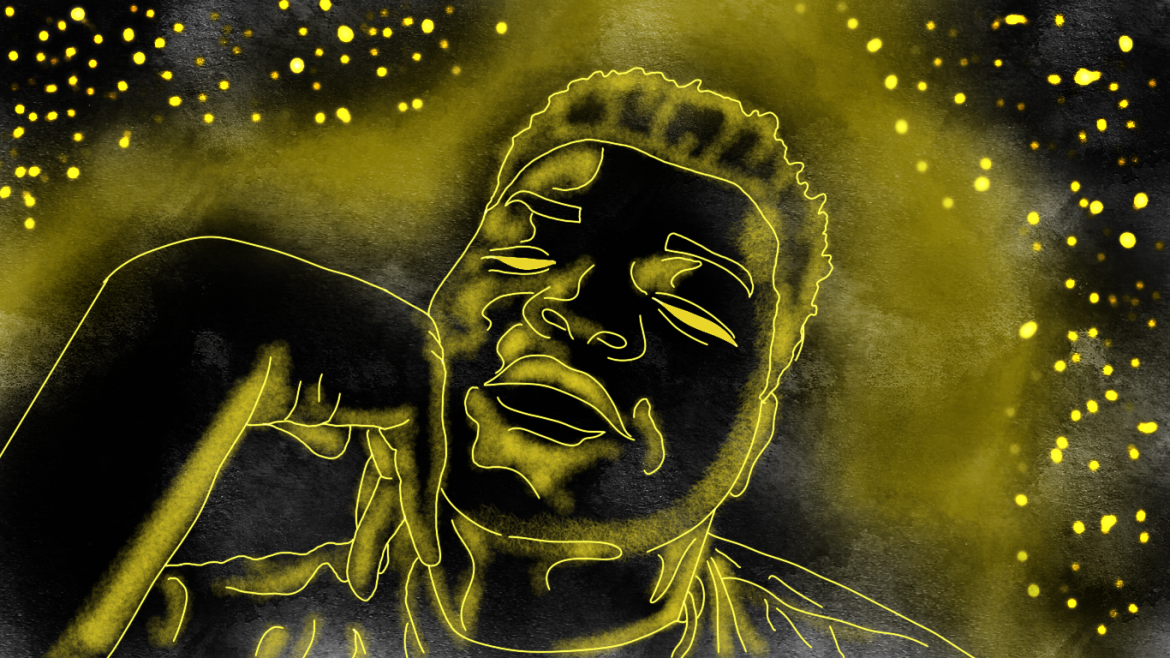An illustration represents Viewpoints Staffer Antonio Starks’ pride and love of his Black identity. At a young age, Starks recognized the difficulty of navigating his identity in a racialized world. “It felt like whatever agency I had in my body was gone, my soul and my livelihood had been taken from me before I was even born,” Starks wrote. Illustration by Antonio Starks
Viewpoints Staffer Antonio Starks writes about his experience with having stereotypes forced upon him as a young Black male.
I remember when I was small and I didn’t know what race was. I knew that people looked different, but I was just me. Then, suddenly, I knew I was different. I felt the constrictions of race without knowing where it came from.
Even before I’d felt those constrictions, I was ascribed the gender of “boy”. While I believe it suits me, it always seemed like an invisible title that didn’t really affect me. When I was younger, I felt I functioned as an invisible gender, but as I learned more about myself, I learned more about the intersection of patriarchal boundaries around me.
Especially with how largely white-dominated the United States of America is, I thought more about these two words: Black male.
Those two words could signal my death when someone calls the police, yet it describes what I am in life. When others think of my identity, they put characteristics on me that don’t fit my description.
I’m not a dime-a-dozen corpse to be trivialized. I’m not illiterate. I don’t need a white savior to teach me to be civilized.
Black men have historically been stereotyped as rude, violent, aggressive, nappy-headed or hypersexual. These words have been forced on me through centuries of fear and dehumanization.
However, there is another school of thought that can be just as malicious as a response to my being. Who I actually am is in direct conflict with what ignorant people think I am based on my race and gender.
I must be the Black messiah, a part of the talented tenth. I must be something more than my peers because being Black can’t be separate from those stereotypical characteristics. There were times when I was subject to this thinking and I thought that my academic achievement gave me a higher status than other Black people.
I’m not a dime-a-dozen corpse to be trivialized. I’m not illiterate. I don’t need a white savior to teach me to be civilized.
It felt like whatever agency I had in my body was gone, my soul and my livelihood had been taken from me before I was even born. I’ve felt this from comments about my body and how it should be used, whether it be sports or how I can’t get into college on my academic merit.
Despite what some may think about me without knowing me, I love my title: Black male. I love my Blackness. I am not an exception. I am not one of the “good ones.”
I am who I am, and no one but me decides what that is.
